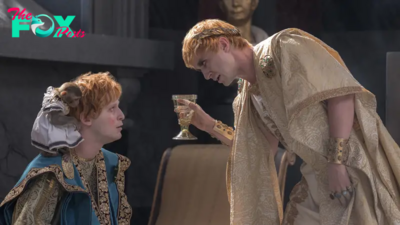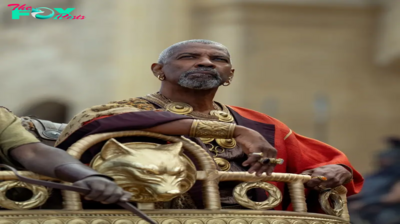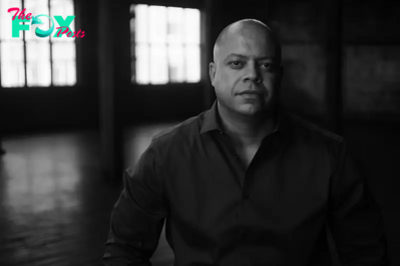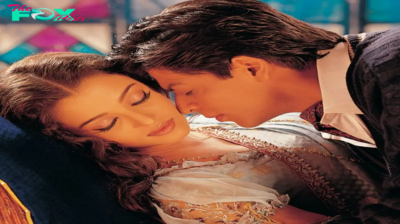Entertainment
Utilizing Given Circumstances in your Appearing
Likelihood is, when you’ve ever discovered your self in an appearing class—something from a one-off course to a three-year drama faculty diploma—you’ll have encountered the idea of given circumstances. They’re these basic questions we ask ourselves a couple of character: who, the place, when, why, what and the way? The truth is, GC’s are so basic that actors all too usually neglect what highly effective instruments they are often within the shaping of a efficiency. They may write them down once they first begin analysing the script, however they’re rapidly forgotten. Let’s buck this development with a discuss utilizing given circumstances in your appearing.
Utilizing given circumstances in your appearing grounds your selections, offering context to your scene and depth to your character. Moreover, given circumstances can act as modifiers to your scene—altering points of your efficiency which may elevate the stakes and dramatic pressure.
This text is meant to be a sensible information. We’ll look over every of the central questions of the given circumstances and talk about how every of them can be utilized to change and enhance your efficiency.
What are Given Circumstances?
Given circumstances are a collection of questions, attributed to Russian practitioner Konstantin Stanislavski, designed to carry a way of actuality and fact to an actor’s efficiency. Stanislavski’s authentic questions have been refined by subsequent theatrical practitioners, who add their very own interpretations and even new circumstances to think about. Ivana Chubbuck is one such practitioner, who’s intently related to the idea.
For additional data on given circumstances, try our devoted article on the topic. For at the moment, all you’ll have to carry is a fundamental understanding of these basic questions: who, the place, when, why, what and the way?
Utilizing Given Circumstances in your Appearing
As we talked about above, given circumstances are sometimes a part of your early script evaluation. They’re excellent for a fast grounding of concepts to make a personality really feel actual. Nonetheless, they’re usually put aside in favour of extra complete investigation into the script, or as selections round setting or character start to be agreed upon by a director and their solid.
Our recommendation is to return to them. Given circumstances will help you clear up points round your character and their motivations, usually with easy options you’ve forgotten with extra ‘in-depth’ appearing selections. Marvel why your character’s crabby in a specific scene? Do not forget that it’s set in winter, on a chilly morning with a recent layer of snow. Possibly they’re chilly…
Utilizing Given Circumstances to Form a Scene
In case you’re performing an A/B scene, maybe for an appearing class or a showreel, given circumstances are highly effective modifiers that may change up a personality or state of affairs fully. A shift in identification for a anonymous character can fully subvert the facility dynamic. In case your scene has a time constraint positioned upon it, or a special motivation on your character to attain their aim, or completely different ways they make use of to get what they need … there’s no finish to the work you are able to do.
Let’s take a look at the probabilities of every query by itself.
Who?
“Who am I?”
Use this query to discover you character’s identification. Take the time to uncover their previous, their persona and what would possibly encourage them in the direction of their objectives. Are they pushed by greed, by revenge, by a selfless need to make the world a greater place?
All the things you do in efficiency must be explicit to your character. It must be their technique of fixing an issue, of preventing for what they need. Tackling the “Who?” query and utilizing given circumstances in your appearing will enable you to set up this
Extra Tip: Strive writing a personality questionnaire to get to know your character. Focus as a lot on the massive issues because the small: typically the necessary particulars are the little issues, like how they chew their nails every time they attempt to mislead any individual.
The place?
“The place am I?”
The trick with “the place” as a given circumstance is to be particular. Sure, an A/B scene may be radically completely different when you set it in a graveyard as a substitute of a celebration store. But when your character loves graveyards, or is fearful of clowns… How does the setting of the story relate particularly to your character?
Don’t make assumptions primarily based in your concepts of a sure location or world. It has to narrate on to your character, their historical past and the story they discover themselves in.
Extra Tip: “The place” can also be a chance to consider blocking in a scene, and stage instructions. How does your character transfer bodily by means of an area?
When?
“When is it?” “What time is it?”
“When” is likely one of the most versatile given circumstances—and infrequently the least thought-about .As with “the place”, be particular. Realizing the date or time interval during which a scene is about is helpful, however you may go additional and take into consideration the time of 12 months, the season, the time of day. Sure instances could have extra significance for sure characters. The primary day of summer season is a cross on a calendar for a grown up; for a college child, it marks the start of a magical time of potentialities.
The opposite consideration with “when” is time as a constraint. Is there a strain on the scene? Is your character operating late, or looking for the bomb that’s ticking down however can’t accomplish that as a result of they’ve to listen to their boring work good friend’s story first? Use time to create urgency in an in any other case mellow, low-stakes scene.
Extra Tip: In life, we are inclined to trip when we’ve necessary conversations: we ask for favours when individuals are alert and completely happy, not drained and grumpy. Is your character a morning individual? If not, an necessary cellphone name that is available in at 3am would possibly mood the way in which they conduct themselves.
Why?
“Why am I right here?” “And why do I need what I need?”
Use “why” to find out your motivation in a scene. This motivation is the rationale your character has proven up on stage or set within the first place. When you recognize the “why”, your selections in a scene shall be charged function, vitality and stakes.
Together with “who” questions, “why” can even unlock some fascinating issues to think about on your character’s backstory. This side of “why” is a bit more existential, and extends past the direct causes on your character’s placement, needs or actions within the context of a given scene.
Extra Tip: Strive writing a timeline on your character to trace their motivations by means of the narrative. The timeline may even prolong past the written story, incorporating the backstory offered both by your self or hinted at by the creator.
What?
“What do I need?”
Little question about it: that is crucial query, as a result of it pertains to your goal. Each character in each scene ever written has an goal, some type of aim, that they’re preventing for. With out it, there’s no drive to the motion or battle to the drama.
Asking your self “What do I need?” will drive you to think about your goal. And it’s not simply your aim—it’s the rationale the scene exists in any respect. In case you’re enjoying a scene during which two characters completely hate one another, you must discover the rationale they don’t instantly run away from one another, or tear at one another’s throats.
Extra Tip: Stanislavski mentioned that actors ought to ask themselves the given circumstances questions continually all through a scene. It’s best to do the identical for “What?” to make sure that your goal hasn’t modified. If it’s been achieved, or is not potential, your character has to determine what they need subsequent.
How?
“How am I going to get what I need?”
When you’ve received the “what” of your goal established, you can begin plotting your actions: the ways your character employs to get what they need. There are far too many actors who assume that answering “how” will rob them of the possibility to be spontaneous, or lock them into boring selections. Nonetheless, asking your self “how” provides your character the absolute best probability to enact change of their scene companion. It helps you choose your goal, take intention and fireplace.
As for spontaneity, think about—in your individual life—the way you put together for a troublesome dialog, or broach the subject of an necessary favour to be requested. In case you actually care about what you need, you completely plan your plan of action with the individual you’re chatting with! And in case your ways fail, you concentrate on the following best choice.
Extra Tip: We all know we’re repeating ourselves at this level, however make your chosen actions particular to your character. A selected tactic may be a no brainer in a given state of affairs—to appeal any individual you’re asking favour of, maybe. Nonetheless, in case your character isn’t naturally charming, this motion gained’t be the correct, plausible match for them…
Conclusion
So there you might have it: our complete information to utilizing given circumstances in your appearing! As a parting piece of recommendation: don’t cease asking the questions. Ask them all through the rehearsal and improvement course of, and at the same time as you’re working the scene on stage or display, ask them some extra.
Given circumstances, like several a part of the appearing course of, can change primarily based in your discoveries or work on set or stage. So be open to those discoveries! And revel in how they enhance and complexify your efficiency all of the extra. This sort of work at all times pays off.
Good luck!
-

 Entertainment2h ago
Entertainment2h agoOrange County Choppers Is Ready For Its Big Comeback
-

 Entertainment6h ago
Entertainment6h agoThe Real Story of Geta and Caracalla, the Roman Brother Emperors in Gladiator II
-

 Entertainment6h ago
Entertainment6h agoWhat Gladiator II Gets Right and Wrong About Real Fights in the Colosseum
-

 Entertainment8h ago
Entertainment8h agoSki Area Officially Opens the Ski Season For New York
-

 Entertainment12h ago
Entertainment12h agoGladiator II Belongs to Denzel
-

 Entertainment12h ago
Entertainment12h agoJJ Velazquez on Finding Freedom, From Sing Sing to Sing Sing
-

 Entertainment16h ago
Entertainment16h ago13 Most Romantic Movies Based on Novels
-

 Entertainment17h ago
Entertainment17h agoThe Monkey Is the Secret Hero of Gladiator II

















